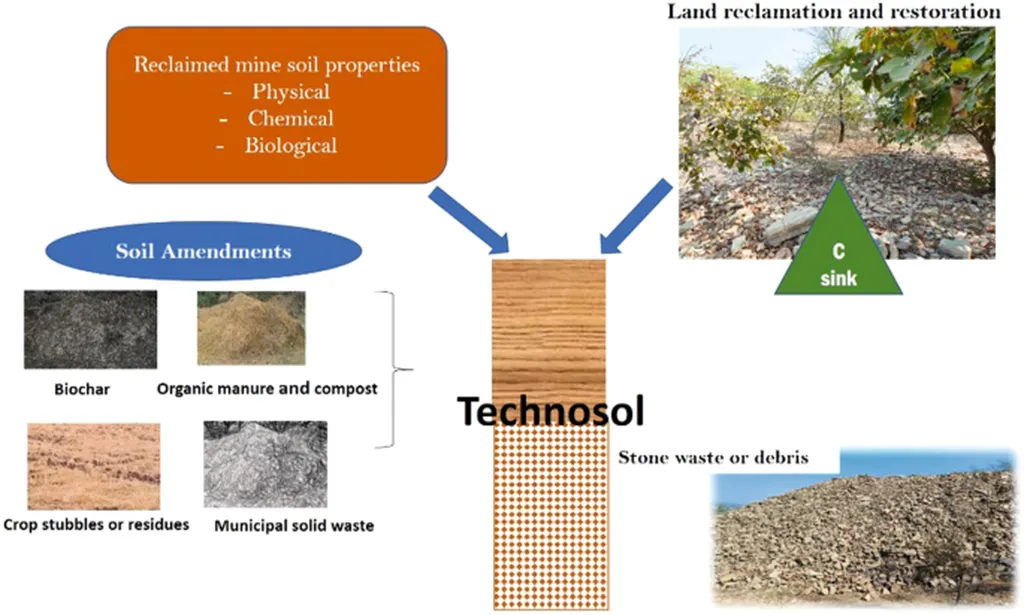In the quest to restore and cultivate post-mining lands, a groundbreaking study led by Eko Kusumawati from Universitas Mulawarman offers a promising solution for sustainable agriculture. The research, published in the *Journal of Tropical Agricultural Engineering and Biosystem* (Jurnal Keteknikan Pertanian Tropis dan Biosistem), explores the use of arbuscular mycorrhizal fungi (AMF) and liquid organic fertilizer to enhance soybean cultivation on degraded post-mining soils.
Post-mining lands often present significant challenges for agriculture due to poor soil quality and nutrient deficiencies. However, Kusumawati’s study demonstrates that the strategic application of AMF and liquid organic fertilizer can significantly improve plant growth and nutrient availability. “The addition of arbuscular mycorrhizal fungi and organic liquid fertilizer is expected to improve the plant growth environment and increase the availability of several nutrients,” Kusumawati explains. This finding is particularly relevant for the energy sector, where post-mining land rehabilitation is a critical concern.
The study employed a two-factor completely randomized design (CRD) with treatments consisting of varying amounts of AMF (0, 10, 20, 30, 40g/polybag) and organic liquid fertilizer (0ml, 10ml/plant, 20ml/plant). The results were compelling: both single-factor and combined applications of AMF and organic liquid fertilizer had a significant effect on soybean plant growth and root colonization. This suggests that these biological inputs can play a pivotal role in revitalizing degraded lands, making them suitable for agricultural purposes.
The implications for the energy sector are substantial. As mining companies increasingly face regulatory pressures to rehabilitate post-mining lands, innovative solutions like those proposed by Kusumawati’s research can offer cost-effective and sustainable alternatives. By enhancing soil fertility and promoting plant growth, these methods can transform barren landscapes into productive agricultural areas, thereby supporting local economies and food security.
Moreover, the study’s findings align with the broader goals of sustainable agriculture, which seeks to balance environmental health with economic viability. “This research opens up new possibilities for utilizing biological fertilizers to improve soil quality and crop yields in challenging environments,” Kusumawati notes. As the world grapples with the dual challenges of climate change and food security, such advancements are crucial for developing resilient agricultural systems.
The research not only highlights the potential of AMF and liquid organic fertilizers but also underscores the importance of interdisciplinary collaboration. By integrating knowledge from agronomy, microbiology, and environmental science, the study provides a holistic approach to land rehabilitation. This collaborative spirit is essential for addressing the complex challenges faced by the energy and agricultural sectors.
Looking ahead, the findings from Kusumawati’s study could pave the way for further research into the use of biological fertilizers in other degraded ecosystems. The energy sector, in particular, stands to benefit from these advancements, as they offer a sustainable path to land rehabilitation and agricultural productivity. As the world continues to seek innovative solutions to environmental and agricultural challenges, this research serves as a beacon of hope and a testament to the power of scientific inquiry.

